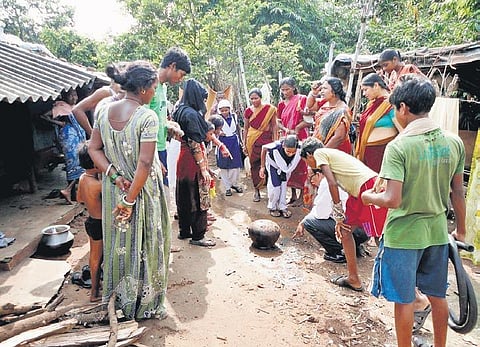

BHUBANESWAR : As monsoon sets in, the State Capital faces dengue outbreak for the second year in a row, raising questions on the efforts of Health department and Bhubaneswar Municipal Corporation (BMC) to contain spread of the vector-borne disease.
A senior official from the Capital Hospital, the premier government hospital in the city, said more than 120 dengue cases have been detected since the beginning of this month. While most have recovered, five persons detected with the disease in the last 24 hours are undergoing treatment.
The hospital authority said 99 per cent of the cases detected by the hospital are from Bhubaneswar, while remaining 1 per cent are from its periphery. The dengue ward in the hospital has 10 beds. “If required we will increase the bed strength in the coming days,” said Capital Hospital Director Laxmidhar Sahoo.
Sources in the National Vector Borne Disease Control Programme (NVBDCP) said at least 10 wards have been affected by dengue, which is now rapidly spreading to other areas of the city. Nayapalli, Chandrasekharpur, Niladri Vihar, Unit-IX are among the worst affected.
A person is also suspected to have died due to dengue fever this month. However, the official confirmation in this regard is yet to be made by the BMC. Delay in source reduction drive, which started only this month, is attributed to be one of the key reasons for the outbreak.
The city had reported more than 2,000 cases of dengue last year. However, both the health department and the civic body seem to have failed to put advance containment measures in place this year. As situation turns worse, Mayor Sulochana Das and new BMC Commissioner Vijay Amruta Kulange held a meeting on Tuesday to check plans to scale up the awareness drive on source reduction to contain the spread. The civic body has decided to take up community level awareness measures to eliminate source of aedes aegypti mosquito larvae that causes dengue fever.
BMC officials said two days in week will be taken up as dry days to eliminate breeding sources in and around government offices, residential areas, slums and other areas. Additional district urban public health officer (ADUPHO) Antaryami Mishra said door-to-door surveillance has also been intensified by the health, BMC and NVBDCP teams, especially in the vulnerable areas.